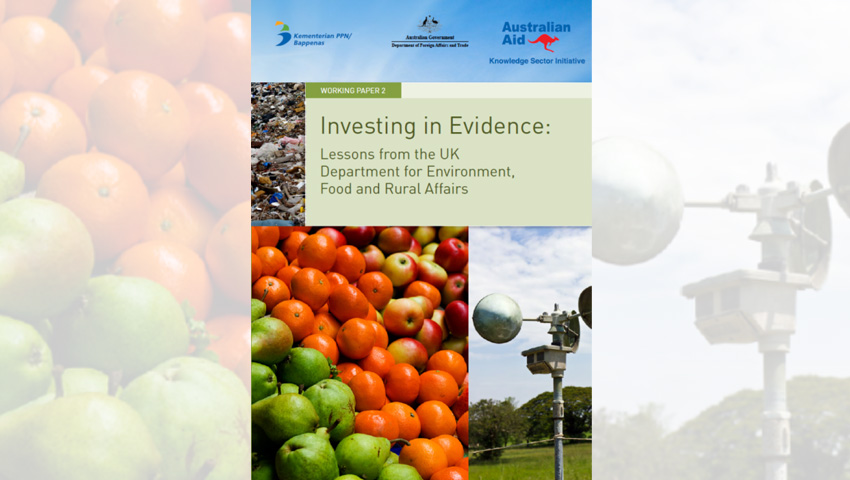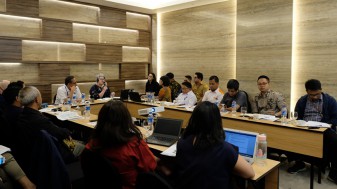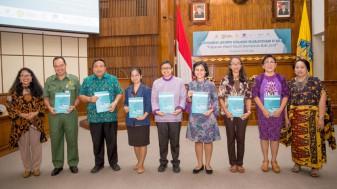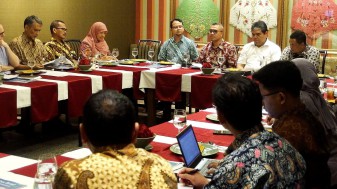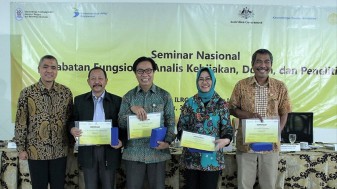I have been reading Kompas newspaper at home on Saturday mornings and two recent articles have made me think about how we can apply this phrase ‘evidence-informed policymaking’ to Indonesia. One article, on 8 November 2014 entitled ‘Research Based Policy’ https://www.kompas.com/ highlighted the importance of investing in evidence to inform policy makers in the policy making process in the health sector. The research and development unit of the Ministry of Health_MoH (Balitbangkes) is supposed to play an important role in providing ‘robust evidence’.. But the Head of Balitbangkes, Tjandra Yoga Aditama, claimed that the unit has invested in evidence and research for policy makers within the ministry, “… for instance, Directorate General of Health Management Efforts of MoH used our study on ‘Health Research Facilities (Riset Fasilitas Kesehatan_RISFASKES)’ as the main reference when asked to figure out the needs of healthcare facilities….”
Meanwhile, the Secretary General of Indonesian Doctor Association, Daeng Mohammad Faqih, argued this statement, “…I have never heard that the Balitbangkes researches and studies have been used by relevant policy makers to make policies. MoH really needs evidence and data from internal study to find a solution to the health problems in Indonesia…”
Another article in the same newspaper on 5 December 2014 https://www.kompas.com/ entitled ‘Integrated Medical Research’ showed that research management in the healthcare sector has been fragmented between health care, the medical industry and medical education. It is unclear how budgets are allocated to research in the healthcare sector. It is also unclear what this fragmentation means for the quality of the evidence the research organisations produce and how it can help the Ministry of Health to take good decisions. Ironically, some research in health have been conducted based on the researchers’ interest only. Therefore the research results and recommendations are meaningless because they do not address the public need.
What this says to me is that Balitbangkes researchers face a dilemma about their current status: they are neither bureaucrats nor independent researchers. Basing a policy decision on the results of a single study do not allow us to understand whether the study has been produced to support a particular point of view, or whether it provides an independent assessment. But if we do not have a systematic approach to encouraging studies by different organisations, we will end up with a fragmented system that produces bits of evidence that we cannot base decisions on. The debate around evidence-informed policymaking argues that it is important to have independent assessments to ensure policy decisions are based on the best available evidence. If the status of researchers in Balitbangkes is unclear, it seems to me collaboration between Balitbangkes and other organisations (including universities and private research institutes/CSOs) becomes extremely important if we are to be sure that decisions affecting us are based on the best available evidence. It also becomes important to ensure that each ministry in Indonesia (not just the Ministry of Health) has a good strategy for investing in all the evidence it needs to take decisions.
The Knowledge Sector Initiative, where I work, is producing a series of working papers which draw from international experience. One of them describes how a ministry in the UK developed a rigorous strategy for in investing in evidence and knowledge to support the policy making process. In 2004 the UK’s Department for Environment, Food and Rural Affairs (DEFRA) adopted a systematic approach, known as an Evidence Investment Strategy (EIS), to improve how it sources and uses evidence to inform policymaking. Over the past decade the EIS has been implemented in three phases: 2006-2010, 2010-2013, and 2014-2018. They have helped Defra ensure that its budgets and staff are aligned to deliver an evidence base that helps it achieve its policy priorities. I believe there are some important lessons that Indonesian Government Officials and Balitbangkes could learn from Defra’s experience.
The two main points I take away from Defra’s experience are: first, how important it is that ministries collaborate with external researchers or research organisations to provide high quality evidence for decisions. Second, there needs to be a clear budget allocation within ministries for research and other forms of evidence (such as evidence from evaluations). As an example, of joint-research in the health sector, Balitbangkes should collaborate with other universities and research institutes to provide constructive feedback – in the form of an independent critical review – of the implementation of the National Health Insurance or Kartu Indonesia Sehat that was launched by new administration of President Joko Widodo last year.
By Iskhak Fatonie - Senior Program Officer, KSI

